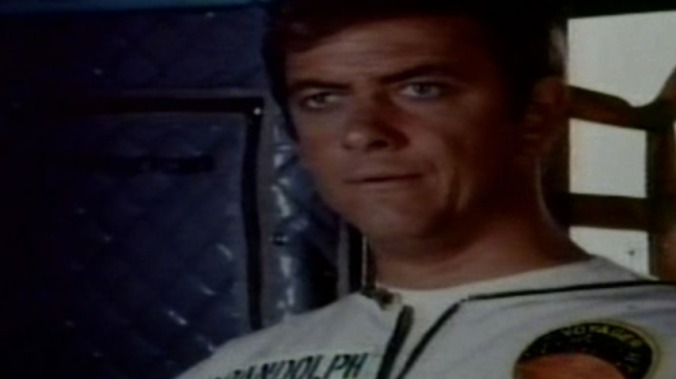The Astronaut Asked Groundbreakingly Cynical Questions of NASA

From 1969 to 1975, ABC put out weekly films. They functioned as TV pilots, testing grounds for up-and-coming filmmakers, and places for new and old stars to shine. Every month, Chloe Walker revisits one of these movies. This is Movie of the Week (of the Month).
In December 1972, only three years after Neil Armstrong became the first man to walk on the moon, Gene Cernan became the last man to walk on the moon—to date, anyway. After the U.S. won the Space Race, public interest in the Apollo missions dwindled; a little more than a thousand days after all the excitement around Apollo 13, it seemed like few people cared anymore. And so, with such widespread indifference, NASA’s budget was cut to the point where another moon landing was no longer on the cards.
That January, an ABC movie of the week had theorized the lengths NASA might go to to maintain the funding they needed to survive: The Astronaut.
We begin with a televised landing on Mars. Suddenly the picture cuts out. Panic ensues.
Something’s gone badly wrong, and the NASA engineers need time to work it out. Aware that their funding relies on the public perception of their success, they hire an ex-pilot, Eddie Reese (Monte Markham), to play the part of missing astronaut, Colonel Brice Randolph (also Markham), so they can stage a successful re-entry. Eddie will be given plastic surgery to look indistinguishable from the real Brice; when the front is no longer necessary, he will be given another new face, and another new life.
Despite their best intentions, no one ever quite gets around to telling Brice’s heavily pregnant wife, Gail (Susan Clark), the truth. So despite his discomfort, Eddie has no choice but to pretend that he is her husband. From the astonished way she reacts to his kindness, it appears that the real Brice was, in a domestic setting at least, far from the hero he appeared on TV. Will Eddie’s goodness be the scheme’s undoing? And what happened to the real Brice?
The Astronaut certainly contains its fair share of the ridiculous (Just how many new faces can a person’s skull handle!?!), but what keeps it tethered to Earth is an unusual dedication to emotional grounding. Although the plot has enormous, international, even extra-terrestrial implications, its heart lies in the relationship between two broken people who find some respite from the chaos of their lives in each other.
Gail has been through the wringer, to put it mildly. She’s suffered an emotionally abusive relationship. She has a miscarriage on the day of the staged re-entry. Then she had her hopes that her husband had changed his ways dashed by the realization that the man she’s been living with since his supposed return has been a complete stranger, whom NASA has given her husband’s face. It’s no wonder that she’s at her wit’s end!
-

-

-

-

-

-

-

-

-

-

-

-

-

-

-

-

-

-

-

-

-

-

-

-

-

-

-

-

-

-

-

-

-

-

-

-

-

-

-

-








































